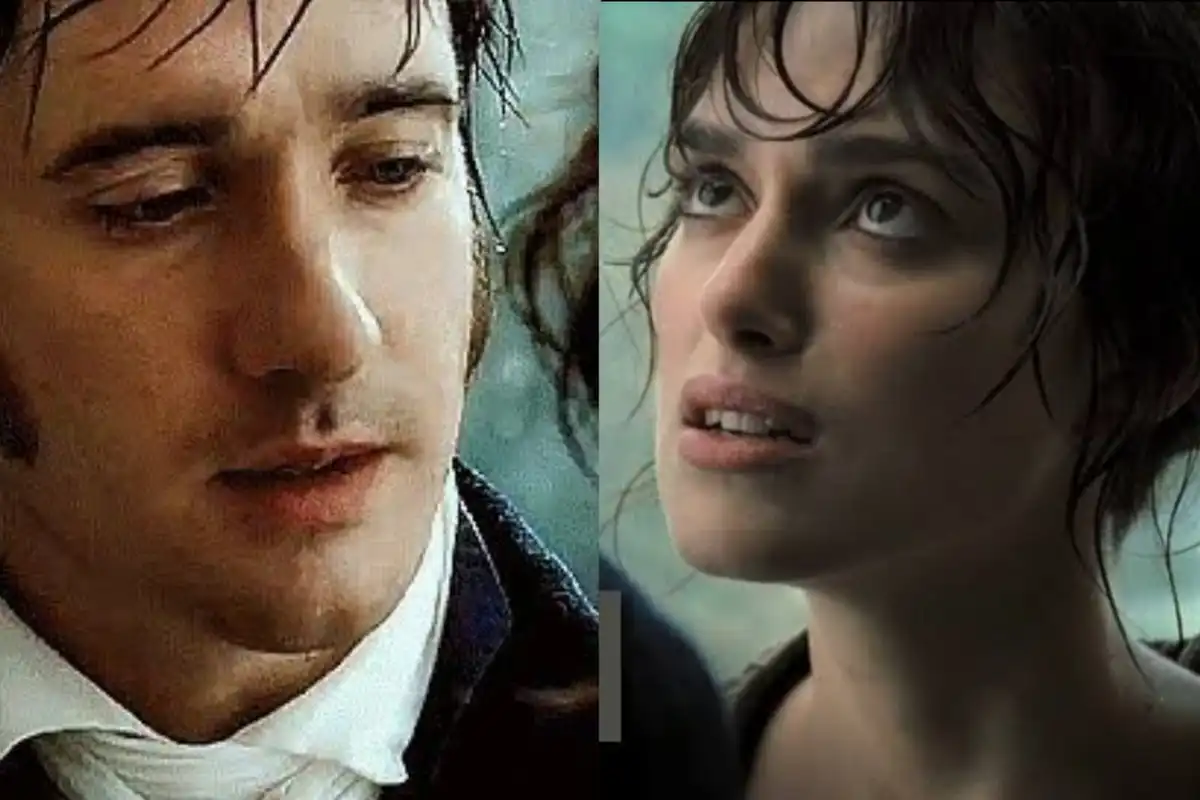Monsoon Magic: When rain bore witness to the bloom of not one, but two love stories, in Pride and Prejudice
Although both Elizabeth and Jane’s love stories were still in their infancy when the rain made its arrival, the weather seemed to play a pivotal role in nudging them forward to realisation.
Jul 30, 2022

The classics have always been a favourite for filmmakers to take inspiration from, and Jane Austen’s timeless works have found themselves amongst the most favoured. Sense and Sensibility, Emma, Mansfield Park, Northanger Abbey, Persuasion, Lady Susan, and Pride and Prejudice, are just some of the author’s works which have found place on the silver screen in the form of television and film adaptations. Among them, Pride and Prejudice perhaps holds the crown for having been adapted for the screen the most, with one quirky adaptation even deciding to throw zombies in the mix. The literary classic seems to be one which filmmakers cannot go wrong with and in 2005 Joe Wright took on the task of rendering Austen’s work for the screen yet again for his directorial debut.
The 2005 film certainly left behind a divisive legacy, with many viewers forming sharply contrasting views of the film, especially when it came to whether or not it did ‘justice’ to Austen’s much loved novel. But despite the nuances fans argued over, the film’s use of nature in a way that embraced romanticism caught the eye of many.
The stunning landscapes and rustic farm settings undoubtedly do a great job at captivating audiences. But the way Wright made rain bear witness to the turning points in the two chief love stories of the film offers a subtle kind of charm that definitely did not go unnoticed for me.
The rain first seems to have played cupid when it came to Jane Bennet and Charles Bingley, although Mrs Bennet takes the credit for having given the obnoxious push the couple needed for their love to bloom. After having charmed the aristocratic bachelor with her beauty and grace, young Jane is invited to Netherfield, the Bingley’s opulent residence, for dinner. An cunning opportunist to her core, Mrs Bennet quickly cooks up a scheme to make sure that she gives the gentleman Bingley enough time to get to know Jane, and fall in love. The matriarch denies her eldest daughter’s request for a carriage, and promptly sends her off to the Bingleys on horseback, just as viewers get to hear the rumble of thunder.
And what would you know, a full blown out rainstorm takes shape, and the Netherfield welcomes a sneezing Jane who is forced to spend the next few days as the Bingleys’ guest, until she recovers from her illness. Thus Mrs Bennet, with a little help from the rain, sowed the seeds which led to Charles Bingley falling hopelessly in love with Jane. Although Charles and Jane did have to go through some tumultuous times before they could actually be together, I like to think that their flying start did more than help a little to cement the foundation of their love story.
Jane and Charles were a much more ‘easier’ pairing compared to Elizabeth and Darcy’s. While the former two were more or less as polished a pair as they come, Lizzy and Darcy found themselves at odds from their very first meeting. Darcy’s cold aloofness and reticence to the point of frigidness is a sharp contrast to Lizzy’s amicable warmth and liveliness. But as is the case more often than not when it comes to love stories, Darcy takes everyone, especially Lizzy, by surprise when he declares his ardent love for the second Bennet child. And of course the rain provided Darcy with the perfect setting for his memorable and impassioned proposal.
Just moments after Lizzy learns the truth about the Bingleys’ abrupt departure, which Darcy had facilitated. The latter declares his love for Lizzy with a proposal which will definitely find a place in the list of most awkward declarations of love. Darcy makes sure that Lizzy knows his feelings are against his better judgement, and gently reminds his beloved of the inferiority of her rank and social standing. Once Lizzy composes herself, she puts Darcy in his place, telling him how she was aware of his actions that hindered Jane’s chance at love, and the two painfully part ways.
Granted, Lizzy’s sharp rejection did manage to dampen, pun intended, Darcy’s passion instantaneously. But a case could be made that despite how things seemed on the surface of it, the painfully awkward proposal, and the rejection Lizzy meted out to Darcy, was the jumping off point for the former’s affection. It was in that meeting that Lizzy became aware of Darcy’s affections and despite her best efforts, could not keep her mind free from the thoughts that revolved around her strange suitor. In the end, her confused feelings soon bloomed into affection after she realised the depth of her suitor’s feelings. Thus, in the film, the rain seemed to possess the same kind of ‘positively occult’ matchmaking skills that Mr Bennet credited Mrs Bennet with.
Share